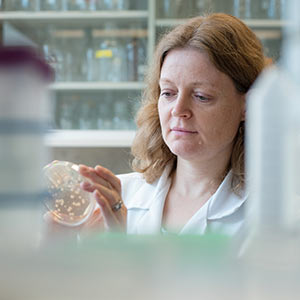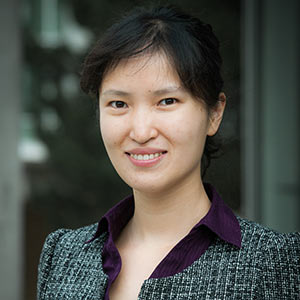You’ve got your eye on the food supply: safety, nutrition, quality, sustainability. The skilled instructors and collaborative experts in UBC’s graduate programs in Food Science will move you to the next step, where you can integrate and apply your knowledge to expand science, guide policy and shape the future of food on the planet. UBC is a global leader in this area of study and research. It’s where you want to be.
PhD: Food Science – Doctor of Philosophy – Postgraduate / Graduate Degree Program – UBC Grad School
MSc: Food Science – Master of Science – Postgraduate / Graduate Degree Program – UBC Grad School
What you need to know
UBC’s innovative research in Food Science has brought national and international recognition to our faculty and student researchers, attracting not just awards but also valuable collaborations with research centres and universities across Canada and around the world. Since its inception in 1969, the Food Science program at UBC has been a leader in providing opportunities for advanced study and research in food chemistry and biochemistry, process science, microbiology, safety and toxicology, biotechnology, quality evaluation and wine biotechnology.
Our faculty takes an interdisciplinary, community-connected and hands-on approach to Food Science education and research to address issues around food, nutrition and health, and the responsible use of finite land and water resources. Underlining it all is the drive to ensure a sustainable and safe food supply — for us, and for everyone.
The Food Science program offers opportunities for advanced study and research leading to MSc and PhD degrees in the areas of: food chemistry and biochemistry; food process science; food microbiology; food safety and toxicology; food biotechnology; food quality evaluation; and wine biotechnology.
Graduate training in Food Science normally involves a combination of courses in both basic and applied sciences, with research leading to a thesis. Students are encouraged to publish their research results in refereed journals.
Coursework is selected in consultation with the student’s supervisory committee and includes graduate courses in food science, and from other disciplines relevant to each student’s research area.
In addition to laboratories equipped for chemical, analytical, molecular biology and microbiological (including Biosafety level 2) based research on food, the program houses pilot plant and sensory evaluation facilities for research requiring food-grade specifications.
Students can also access research facilities at UBC, such as the Laboratory of Molecular Biophysics, BioImaging Facility and Michael Smith Laboratories, as well as through collaborations with other institutions including Agriculture & Agri-Food Canada and the Department of Fisheries & Oceans.
Applicants to the Food Science graduate programs must meet the general admission requirements of the
Faculty of Graduate and Postdoctoral Studies.
- Minimum Academic Requirements: Canadian or US Credentials
- Minimum Academic Requirements: International Credentials
- English Proficiency Requirements
- Conditional Admission Program
In addition, applicants to the graduate programs in Food Science are expected to have completed prerequisite fundamental undergraduate courses in organic chemistry, biochemistry, calculus, physics, statistics and microbiology. Applicants who lack some of these prerequisites and/or who do not have previous undergraduate background courses in the field of food science (food process science; food chemistry; food analysis; food laws, regulations & quality assurance; microorganisms in food systems; and principles in food engineering) may be required to take additional coursework for their program.
Specifically, students must have completed, as pre- or corequisites, the equivalent of four courses (12 credits) from the following six core courses in Food Science:
- FNH 309 Food Process Science
- FNH 301 Food Chemistry I
- FNH 302 Food Analysis
- FNH 403 Food Laws, Regulations, & Quality Assurance
- FNH 313 Microorganisms in Food Systems
- FNH 300 Principles in Food Engineering
Please note that the program receives many applications meeting the minimum program admission requirements. Admission is recommended for a select number of candidates who demonstrate outstanding academic standing and research potential or background, and who have a confirmed research supervisor.
For students who wish to be considered for scholarships, preference is given to those who submit a complete application (including all required supporting documentation to enable to full file review and evaluation) to Graduate Studies before January 31. Additional information at Scholarships and Financial Aid.
MSc program
Students admitted to the MSc degree program will possess a BSc degree in Food Science or a related area, and must meet the general requirements for master’s degree programs set by the Faculty of Graduate and Postdoctoral Studies.
PhD program
Students admitted to the PhD degree program will normally possess a MSc degree in Food Science or a related area, with clear evidence of research ability or potential. Transfer from the MSc to the PhD program is permitted under regulations set forth by the Faculty of Graduate and Postdoctoral Studies.
Master of Science
The MSc program requirements are as follows:
Completion of the MSc program requires a thesis (12 or 18 credits) plus coursework, for a total of 30 credits. With a 12-credit thesis, students can include a maximum of 6 credits of senior undergraduate courses. With an 18-credit thesis, students can include a maximum of 3 credits of senior undergraduate courses.
Students who are planning a professional career will typically enrol in the 12-credit thesis option. The 18-credit value option requires a more intensive research experience and is more appropriate for students considering the PhD program or a research career. The thesis credit decision should be determined in consultation with the student and research advisor at the start of the program.
Additional coursework may be recommended upon consultation with the student’s supervisory committee.
PhD
The PhD program requirements are as follows:
- coursework will be selected in consultation with the student’s supervisory committee
- students are required to take a comprehensive examination
- completion of a research thesis demonstrating ability to conduct significant and original scientific research
Coursework
Coursework is selected in consultation with the student’s supervisory committee, and includes graduate courses in animal science and from other areas relevant to each students research.
Faculty Members

Vassilis Kontogiorgos
Associate Professor, Food, Nutrition and Health (Food Chemistry)

Tianxi Yang
Assistant Professor, Food Science

Jerzy Zawistowski
Academic Director, Master of Food Science Program

Derek Dee
Assistant Professor, Food, Nutrition and Health (Food Science)

Vivien Measday
Associate Professor, Wine Research Centre
Associate Member – Department of Biochemistry and Molecular Biology
Associate Member – Michael Smith Laboratories, Genomics Group

Siyun Wang
Professor, Food, Nutrition and Health (Food Safety Engineering) Food, Nutrition and Health (FNH) Program Director

Anubhav Pratap-Singh
Associate Professor, Food, Nutrition and Health (Food Processing)

John Frostad
Associate Professor, Chemical and Biological Engineering (joint appointment with Chemical and Biological Engineering)

David Kitts
Professor, Food, Nutrition and Health (Food Science) and Dean pro tem
Collaborations
Students may also be involved in research projects in collaboration with adjunct faculty and researchers from other university departments, Agriculture and Agri-Food Canada, Fisheries and Oceans Canada, or other research centres. Agriculture and Agri-Food Canada, Agassiz, B.C.
- food microbiomics
Agriculture and Agri-Food Canada, Summerland, B.C.
- fruit quality and processing
- viticulture
- sensory evaluation
- food microbiology
- food chemistry
- functional foods
- post-harvest physiology
British Columbia Institute of Technology
- food processing
- thermal processing
Other food science facilities are accessed through the Wine Research Centre, Biotechnology Laboratory, the Networks of Centres of Excellence, the Laboratory of Molecular Biophysics, the Michael Smith Laboratories, and through collaborations with Agriculture and Agri-Food Canada, as well as with the Department of Fisheries and Oceans.
Got Questions?
Whether you’ve got questions about your program, your experience or your next steps, Graduate Student Services is here to help. Get in touch.
Where Can a Graduate Degree in Food Science Take You?
Graduates of the MSc and PhD in Food Science have gone on to pursue successful careers in academia and research at:
- universities and colleges; and
- government research centres.
Our grads have also gone on to shape careers as quality assurance and research & development scientists or managers in:
- the food industry;
- analytical testing laboratories; and
- consulting companies.
- Alumnus Andrea Goldson Barnaby now lectures at the University of the West Indies, teaching chemical analysis and food processing principles. She also conducts workshops to educate industry personnel about food safety.
Research Updates
A Fast Read on Plastics in Our Food and Water
A new portable tool can give you a precise reading on how much plastic could be seeping from your plastic coffee cup and into your body.
Nature’s Weapon Against Food-Borne Pathogens
Microscopic bacteria-eating viruses, known as bacteriophages or phages, are coming into favour as a way to combat food-borne pathogens.
Edible Packaging is as Good For Your Food as it is For the Planet
A team of researchers is making improvements to edible packaging film as a way to reduce the use of plastic in the food industry.
